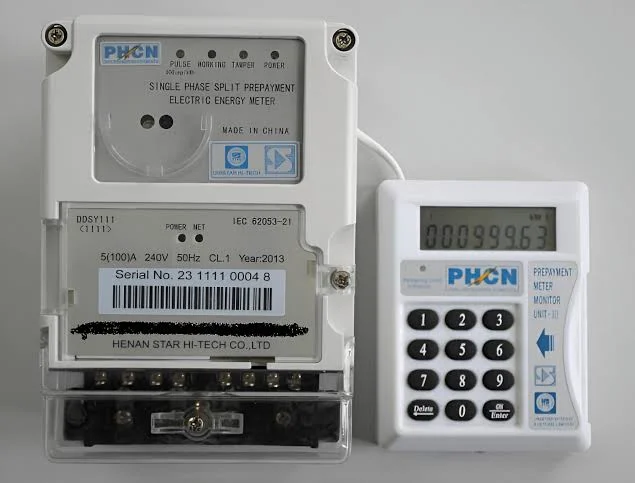In a bold push to modernize Nigeria’s electricity sector, the Federal Government has announced plans to deploy seven million smart meters.
This is under a new national program designed to eliminate estimated billing and reduce revenue leakages in the power value chain.
The Presidential Metering Initiative (PMI) is one of the flagship components of President Bola Ahmed Tinubu’s administration’s energy sector reforms and is expected to transform how electricity is consumed, measured, and paid for in Nigeria.
The Special Adviser to the President on Energy, Mrs. Olu Verheijen, disclosed the development during a media interview in Abuja on Sunday to mark the second anniversary of the current administration.
Tackling Estimated Billing and Revenue Losses
Millions of electricity customers in Nigeria continue to face issues related to inaccurate billing, largely due to the absence of prepaid meters.
Many households and businesses are subjected to estimated billing, a system that often results in unfair charges and chronic disputes between consumers and electricity distribution companies (Discos).
Verheijen stated that the meter rollout will significantly reduce these inefficiencies.
“This initiative will end collection losses for the majority of customers who are currently unmetered. It’s a game-changer for revenue assurance and customer transparency,” she said.
She emphasized that the seven million meters will be strategically deployed across the country, ensuring that the most underserved areas are prioritized.
Strengthening the Gas-to-Power Value Chain
The smart metering initiative is also part of a broader strategy to enhance the commercial viability of Nigeria’s gas-to-power value chain, which remains hampered by poor cost recovery and unreliable revenue flows.
“We are developing frameworks that will allow for cost-reflective pricing and drive efficiencies in determining those costs,” Verheijen explained.
This, she said, will ultimately attract more private capital into the power sector and reduce the heavy fiscal burden of electricity subsidies on the federal budget.
Clearing Legacy Debt and Demanding Accountability
Verheijen further revealed that the government is working to settle outstanding debts owed to generation companies and gas suppliers—debts that have built up over the years due to underperformance in the sector and inability to recover electricity subsidies.
The settlement, she noted, would be made using a combination of cash payments and promissory notes, restoring liquidity to critical parts of the power chain.
However, she clarified that the government’s support will come with firm conditions.
“In exchange for clearing these legacy debts, all players across the value chain—Discos, Gencos, and gas suppliers—will be expected to raise their performance, improve collections, and invest more in grid access,” she said.
Improving Disco Governance
The administration also plans to address long-standing governance issues plaguing Nigeria’s 11 Discos.
Verheijen stressed that distribution companies, as the final touchpoint in electricity delivery, must operate efficiently to ensure sustainable power supply.
Through regulatory enforcement, performance benchmarks, and potential restructuring, the government aims to enhance the credibility and performance of Discos.
This is as many have struggled to meet service obligations since their privatization over a decade ago.
Looking Ahead
With the rollout of smart meters and strategic interventions in financing, governance, and infrastructure, Nigeria’s power sector may finally be on the path to delivering stable, transparent, and sustainable electricity to millions of homes and businesses.
As implementation begins, stakeholders and citizens alike will be watching closely to see whether the initiative can deliver on its promise to end the era of estimated billing and revitalize confidence in the nation’s power system.



















